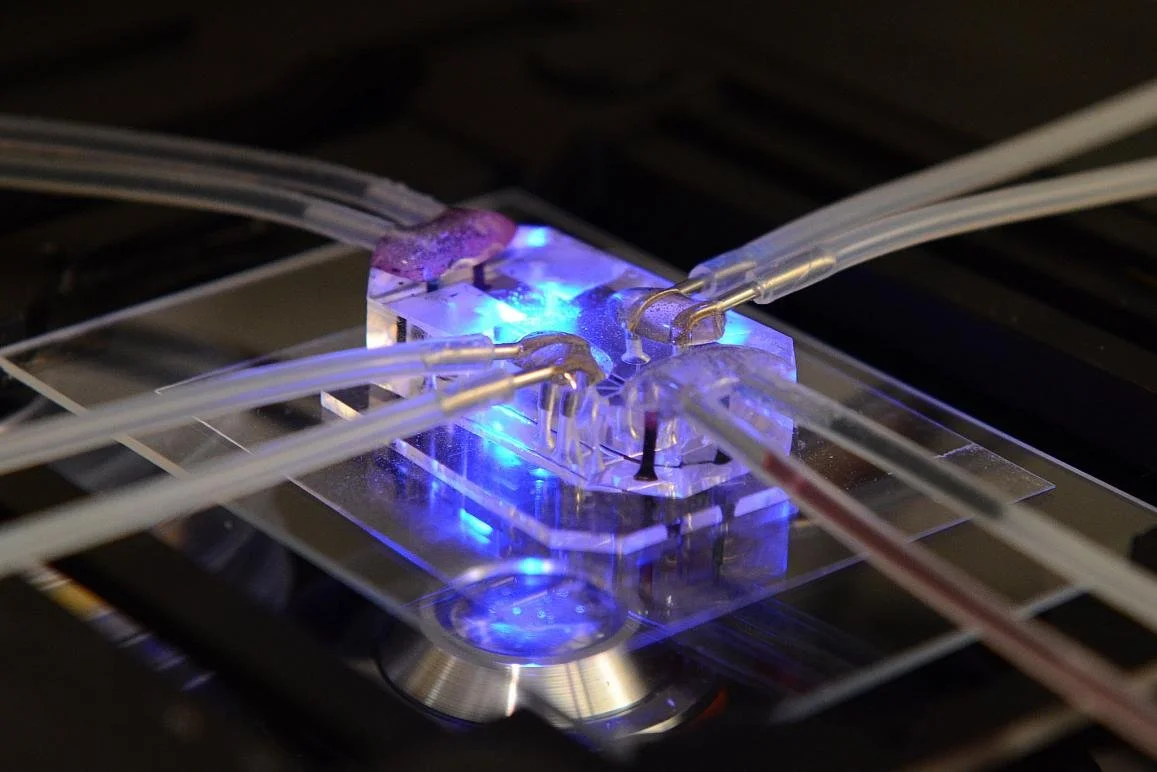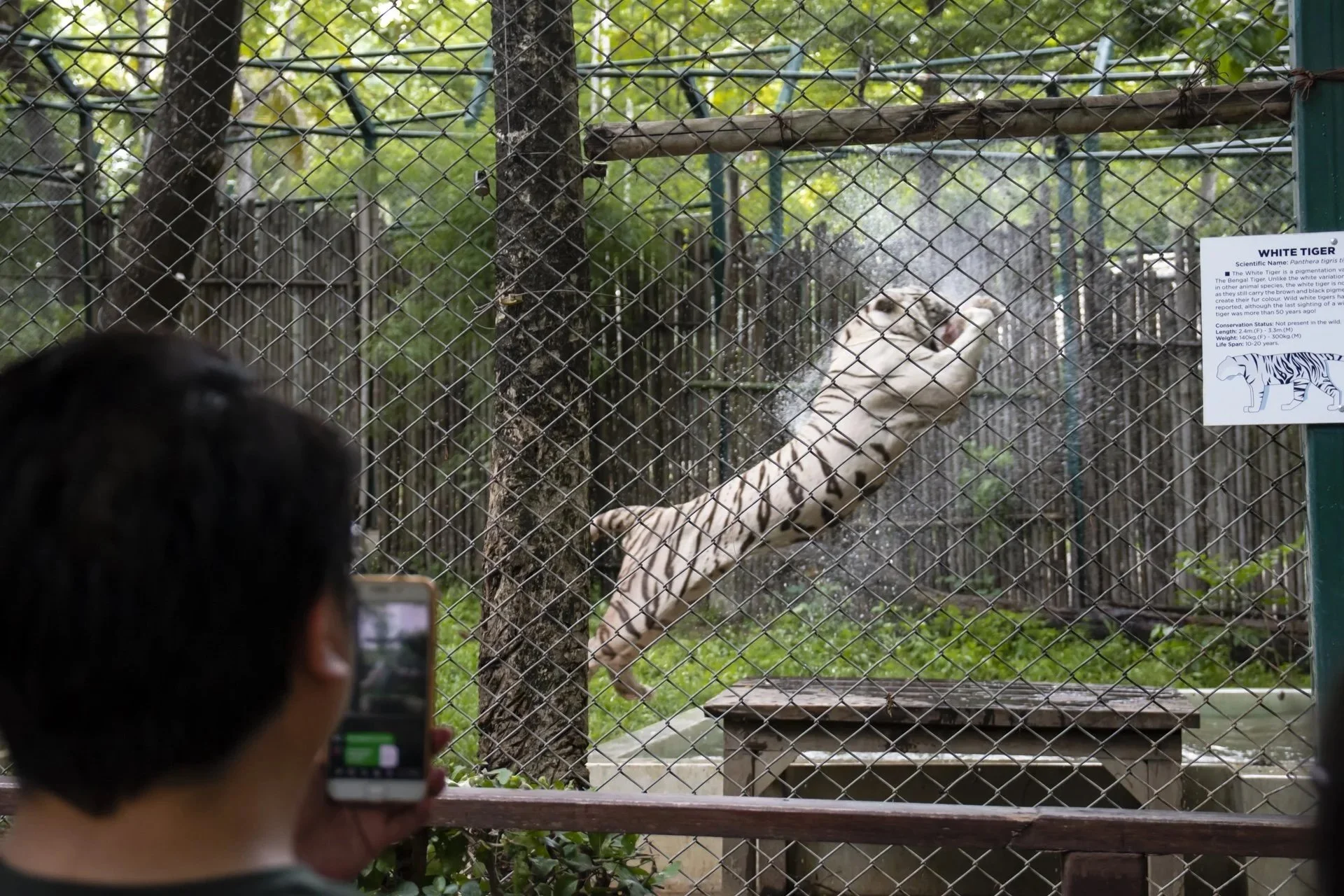Harvard’s infant macaque experiments defunded after years of public outrage
The NIH has terminated funding for Dr. Margaret Livingstone’s controversial primate lab, with advocates now calling for the surviving monkeys to be retired to sanctuary.
Photo credit left: PETA. Right: Figure 3 in Triggers for Mother Love/ Margaret S. Livingstone / CC-BY-NC-ND
Funding for maternal and visual deprivation experiments on infant rhesus macaques at Harvard University has been terminated, bringing an end to decades of controversial research led by neurobiologist Dr. Margaret S. Livingstone.
The National Institutes of Health (NIH) funded lab has used infant monkeys to study visual recognition by preventing them from seeing faces, either by sewing their eyes shut or by requiring staff to wear welders’ masks around them. Monkeys were also made to wear goggles that simulated disorienting strobe lights for the first 18 months of their lives, and in some cases, electrode arrays were implanted into the monkeys’ brains. When the tests were finished, the animals were typically killed and dissected.
Dr. Livingstone has received over $32 million in NIH grants to conduct these tests since the 1980s.
The experiments were first brought to public attention in 2022 by People for the Ethical Treatment of Animals (PETA), which campaigned against them through advertisements and federal complaints. More than 700,000 PETA supporters sent emails to Harvard calling for an end to the tests.
“PETA celebrates this massive victory and toasts the end of Margaret Livingstone’s career as tormenter of baby monkeys,” said PETA Senior Vice President Kathy Guillermo. “PETA applauds the Trump administration’s decision to strip funding from one of the cruelest experiments ever devised and perpetrated on infant monkeys.”
The tests drew widespread condemnation from hundreds of scientists, primatologists, and other experts, who emphasized the profound psychological and physiological harm these procedures inflict on infant macaques.
In 2023, more than 380 scientists, doctors, and academics from around the world including renowned primatologists Dr. Jane Goodall, Dr. Ian Redmond, and Harvard’s Dr. Richard Wrangham, urged Harvard to review and terminate its ongoing funding of experiments on non-human primates
“As a primatologist with decades of experience in the field, I can say with complete confidence that we know that infant primates and their mothers suffer greatly when they are separated,” Dr. Wrangham, Moore Research Professor of Biological Anthropology at Harvard University said at the time.
He added: “We also know that depriving infants of the ability to see faces will have adverse impacts on their brain and eye development. Taking infant monkeys from their mothers to use in invasive brain experiments could only be justified by expectations of extraordinarily important benefits for the monkeys themselves, or for humans. Because that high ethical bar has not been met, I see no legitimate need for any such research.”
Animal advocates are now calling for the monkeys in Livingstone’s lab to be retired to a sanctuary. PETA sent a letter to Harvard’s Medical School, stating the recent cancellation is a “unique opening for the school to take meaningful action for the animals who have suffered immensely in her laboratory.”
“A sanctuary would offer them what they’ve never had: fresh air, companionship, room to roam, and some measure of peace,” reads the letter. “It’s a chance to let them form bonds with other monkeys, engage in natural behaviors, and begin healing from years of psychological deprivation. It would also relieve the university of the ongoing cost and controversy of housing them in a laboratory.”
Credit: Wyss Institute, Harvard University
The termination of funding follows NIH’s groundbreaking announcement in April that it is moving focus away from experiments on animals and prioritizing human-relevant research methods.
These technologies include organoids, tissue chips, and other in vitro systems that enable scientists to model human diseases and reflect patient-specific characteristics. Computer models are also being used to simulate complex biological systems, disease pathways, and drug interactions. Additionally, real-world data allows researchers to study health outcomes across communities and populations.
“By integrating advances in data science and technology with our growing understanding of human biology, we can fundamentally reimagine the way research is conducted—from clinical development to real-world application,” said NIH Director Dr. Jay Bhattacharya. ”This human-based approach will accelerate innovation, improve healthcare outcomes, and deliver life-changing treatments. It marks a critical leap forward for science, public trust, and patient care.”
To learn more about Margaret Livingstone’s experiments please tune in to the first podcast episode of Species Unite’s 9th season. The episode features Dr. Katherine Roe a neuroscientist and research associate with the Laboratory Investigations Department of PETA.
Every year in the United States, around 25 million animals suffer and die in horrific and unnecessary laboratory experiments. The FDA Modernization Act 3.0 will force the FDA to finally update its regulations and end mandatory drug testing on animals. If you live in the U.S., please reach out to your senators and ask them to cosponsor the Act.
We Have A Favor To Ask…
Species Unite amplifies well-researched solutions to some of the most abusive animal industries operating today.
At this crucial moment, with worldwide momentum for change building, it’s vital we share these animal-free solutions with the world - and we need your help.
We’re a nonprofit, and so to keep sharing these solutions, we’re relying on you - with your support, we can continue our essential work in growing a powerful community of animal advocates this year.





